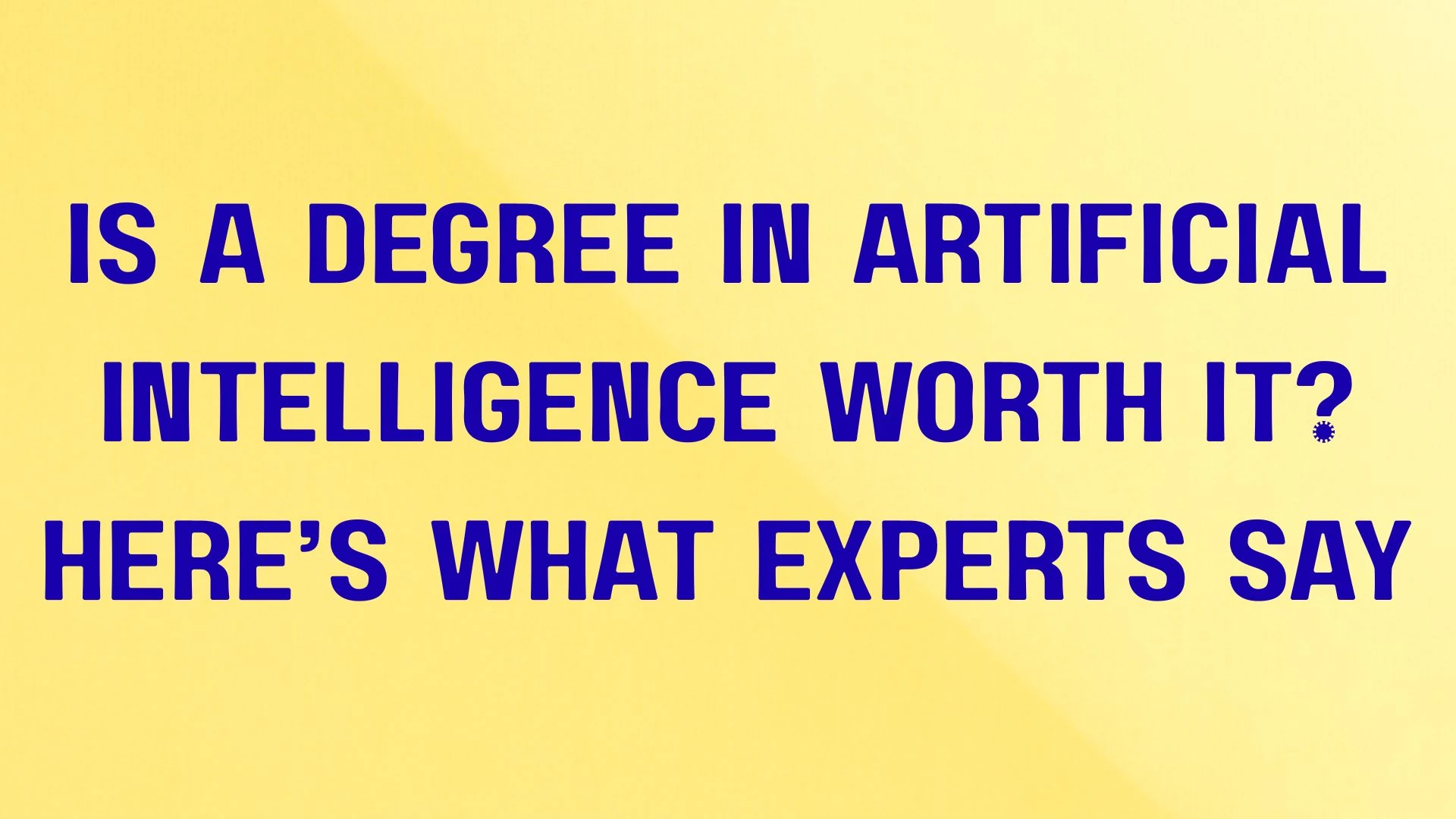AI has become a controversial subject in the recent times. While some people are completely in favour of AI others are still apprehensive of its application. According to several research and reports surrounding AI, it has the potential to bring about big changes in society. These changes include enhanced productivity, better healthcare, and easily accessible education. Naturally, students today are more curious than ever about pursuing a degree in AI and the career opportunities it can lead to.
In this article, we are diving into what an AI degree involves, what experts have to say about AI’s impact, AI upskilling and how it compares to traditional tech courses.
What Does an AI Degree Cover?
An AI degree is an undergraduate B.Tech program that is created to equip students with the knowledge and experience required to develop next age technologies. This degree is a blend of computer science, data analytics, machine learning, and robotics. With the help of an AI degree students learn how to build systems that can think, learn and act intelligently.
A B.Tech AI degree is a four-year degree program. Each year students cover theory and practical knowledge on core engineering subjects and advanced AI technologies. In the initial years, students build a strong foundation with subjects such as Mathematics, data science, and web development. Later on, students dive into specialised topics like Deep learning, Gen AI, and DevOps. The skills and technologies that students learn in an AI degree are C++, Python, NLP, LLM model creation, AI deployment, and much more.
An AI degree also involves real-world projects, lab sessions, and assignments for hands-on experience. Industry experience is gained through internships, which are a part of the curriculum in many colleges. With an AI degree, a student can land entry-level jobs in roles like data scientist, software engineer, AI engineer, machine learning engineer, and robotics engineer.
What Are the Experts Saying About AI?
- Joe Atkinson on the future of traditional degrees-
Joe Atkinson, the Global Chief AI Officer of PWC, told CNBC Make it[1], ‘The reality is we can’t fear the tech. We have to embrace the tech.’ What he meant is that you can either upskill in tech or fall behind. We can see that the demand for formal degrees is declining, especially for jobs that are exposed to artificial intelligence. AL’s ability to help people build rapidly and achieve expert knowledge is making formal education and outdated degrees less relevant in the near future. To keep up with the demands of tomorrow and upskill, a dedicate AI degree is an excellent choice.
- AI skills a must for young grads
Experts and job recruiters are also advising young talent looking for jobs to start familiarizing themselves with the AI tools at their disposal like Claude and ChatGPT. Joseph Fuller, a professor at Harvard Business School and founder of the Managing the Future of Workproject, stated that, ‘Almost anybody in that audience, irrespective of the job that they're pursuing, will be expected to use AI with some facility right away,’ in a conversation with CBS news[2]. Hence, AI and its adoption are now the new reality and something that freshers will have to deal with. In other words, AI skills are now similar to what Microsoft Office was for the previous generation of job seekers.
- AI generating new roles
According to a World Economic Forum report[3], it is estimated that by 2025, AI could generate 97 million new jobs across industries. These new roles will require more than just basic coding skills from engineers. They ask for specialised AI skills, critical thinking, and hands-on experience in AI- things that are the basics of an AI degree.
Bryan Hayes, a strategist at Zacks Investment Research, weighed in on the latest tech layoffs and stated that while AI is replacing some of the jobs, it is also creating a lot of them. According to him, tech employees that are able to show that they can ‘leverage artificial intelligence and help the companies innovate and create new products and services, are going to be the ones that are in high demand’.[4] One of the best ways of becoming an employee who leverages artificial intelligence is developing your knowledge and AI skills with formal training and certifications in AI.
An AI degree offers students more structured and formal training to aspiring AI professionals and can help them gain a competitive edge over self-learners and generalists.
Where To Start?
Are you now as excited about AI education as we are? Do you also want to pursue a degree in AI but are unsure of where to start?
Mirai School of Technology is India’s first AI-First B.Tech undergraduate program. It was created by tech experts and teachers who saw the gap between traditional engineering education and the job requirements of the new-age AI powered roles. At Mirai, students start learning about AI from their first year itself. The curriculum integrates AI, data science and Machine learning along with core engineering subjects.
What sets Mirai School of Technology apart from traditional engineering colleges is its hands-on, project-based learning approach, mentorship from industry professionals and clear focus on real-world application. Students at Mirai graduate with more than a degree they learn the skills, mindset and confidence needed to thrive in the AI-powered world.
What are you waiting for? Enrol with Mirai School of Technology’s B.Tech course by visit https://msot.org/admission. Admissions going on!

